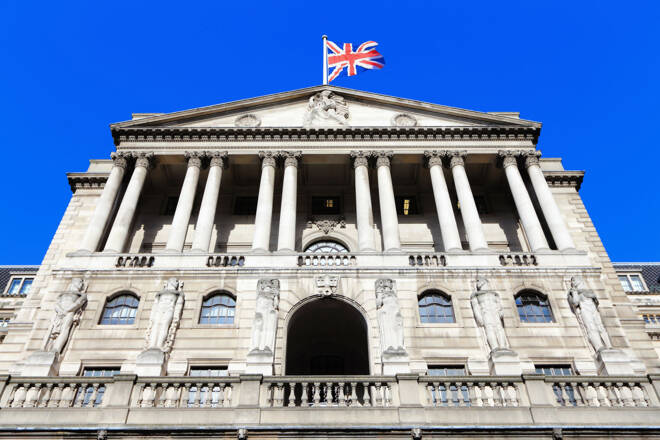Advertisement
Advertisement
BoE Chief Economist Huw Pill Talks Policy as Retail Sales Jumps
By:
Bank of England Chief Economist Huw Pill laid out the Bank's thought process today, which could become more clouded after a jump in consumption.
It was a busy start to the day on the UK economic calendar. Bank of England Chief Economist Huw Pill spoke at the Money Market Association of New York University (Money Marketeers) Event ‘The UK Economic and Monetary Policy Outlook.’
Huw Pill Lays Out the Key Policy Drivers and Challenges
Pill highlighted three factors dictating the monetary policy outlook,
- A common process of monetary policy ‘normalization’ after a long period of exceptional monetary policy support.
- The need for monetary policy to address the inflationary consequences of tight labor markets and strong firm pricing power in the US and the UK.
- Tackling the challenges resulting from adverse terms of trade shock to Europe – including the UK.
Huw Pill noted that the UK faces all three challenges simultaneously, making the monetary policy process more complex.
With regards to the effects of Bank of England policy moves, Huw Pill noted,
“Now that the economy has slowed (and probably entered recession), we are starting to see labor market indicators turn.”
Pill added,
“Should economic slack emerge and unemployment rise as the latest MPC forecasts imply, that will weigh against domestic inflationary pressure and ease the threat of inflation persistence.”
However, Pill elaborated by saying,
“But the extent to which an easing in the labor market induced by monetary policy tightening will weigh against inflationary pressures will depend on the wider context. It is here where the interaction with developments in energy prices plays out.”
Discussing imported gas prices, Pill noted,
“To the extent that the level of imported gas prices remains significantly higher than in the past then the threat of second-round effects that sustain inflation at above target rates may well remain.”
Retail Sales Jump Adds to BoE Inflation Woes
UK consumption was also in focus, however. The BRC Retail Sales Monitor jumped by 6.5% year-over-year in December versus a forecasted 2.4% increase. In November, the BRC Retail Sales Monitor rose by 4.1%.
The unexpected rise in retail sales could pose a problem for the Bank of England and its battle against inflation. Over the weekend, Monetary Policy Committee Member Catherine Mann discussed the effects of energy price caps.
According to Bloomberg, Catherine Mann said that energy price caps could allow a shift in spending to other goods while also stating that removing the caps would create inflation uncertainty. Mann added that the caps would ‘mechanically reduce the inflation rates that are relevant for my monetary policy decision.’
Rising demand for goods and services would keep pressure on other inflation contributors.
GBP/USD Price Action
Ahead of the Huw Pill speech and today’s retail sales report, the GBP/USD rose to a pre-speech and report high of $1.21897.
However, in response to the Huw Pill speech and today’s report, the GBP/USD rose to a post-stat high of $1.21982 before falling to a post-stat low of $1.21704.
At the time of writing, the Pound was down 0.06% to $1.21762.
Up Next
There are no more UK stats to consider or MPC members due to speak, leaving chatter with the media to draw interest.
It is also a quiet day ahead on the US economic calendar, with no material stats for investors to consider.
While there are no stats, Fed Chair Powell will speak early in the US session. The markets are betting on a 25-basis point Fed interest rate hike in February. More hawkish chatter would catch investors by surprise.
About the Author
Bob Masonauthor
With over 28 years of experience in the financial industry, Bob has worked with various global rating agencies and multinational banks. Currently he is covering currencies, commodities, alternative asset classes and global equities, focusing mostly on European and Asian markets.
Advertisement
